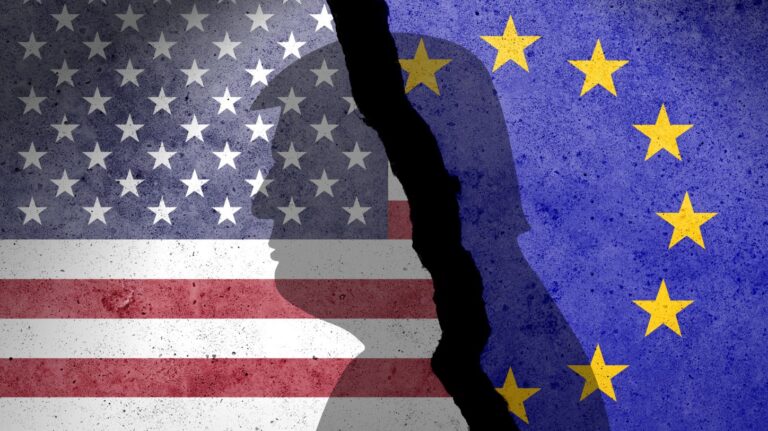On 11 July 2025, US president Donald Trump sent a letter addressed to Ursula von der Leyen, president of the European Commission, which outlined plans to introduce a 30% tariff on EU goods exported to the US from 1 August 2025.
The letter followed a similar format to those released before it, sent to leaders of countries including Japan, South Korea and South Africa.
These letters were sent out, and published by Trump on social media platform Truth Social, from 7 July – when it was confirmed that the 90-day pause on Trump’s so-called ‘Liberation Day’ tariffs would be extended until 1 August.
Many of the tariff rates outlined in these letters differed from the rates announced on 2 April. For example, the US initially announced a 35% tariff on Bosnia and Herzegovina, but a letter sent by Trump to its president stated that a tariff rate of 30% would be applicable to imports to the US from the country as of 1 August.
In the case of the EU, the tariff announced during Trump’s so-called ‘Liberation Day’ press conference was one of 20%, so the figure in this latest letter confirms that an additional 10% has been added to this planned tariff.
In the letter, Trump writes: “The European Union will allow complete, open market access to the United States, with no tariff being charged to us, in an attempt to reduce the large trade deficit. If for any reason you decide to raise your tariffs and retaliate, then, whatever the number you choose to raise them by, will be added onto the 30% that we charge.”
The “large trade deficit” Trump referred to has been disputed. Trump has previously claimed it to be a deficit of US$350 billion (c. £259.6bn), although this figure appears to be unsubstantiated. According to the Office of the United States Trade Representative, the US goods trade deficit with the European Union was $235.6bn (c. £174.8bn) in 2024.
FREE: Subscribe to Logistics Manager’s weekly news round-up and bi-weekly USA newsletter!
Upon receipt of the letter, Ursula von der Leyen issued a statement, which read: “Imposing 30% tariffs on EU exports would disrupt essential transatlantic supply chains, to the detriment of businesses, consumers and patients on both sides of the Atlantic.
“Few economies in the world match the European Union’s level of openness and adherence to fair trading practices. The EU has consistently prioritised a negotiated solution with the US, reflecting our commitment to dialogue, stability and a constructive transatlantic partnership.
“We remain ready to continue working towards an agreement by 1 August. At the same time, we will take all necessary steps to safeguard EU interests, including the adoption of proportionate countermeasures if required.
“Meanwhile, we continue to deepen our global partnerships, firmly anchored in the principles of rules-based international trade.”
A 30% tariff on EU exports would hurt businesses, consumers and patients on both sides of the Atlantic.
We will continue working towards an agreement by August 1.
At the same time, we are ready to safeguard EU interests on the basis of proportionate countermeasures.
— Ursula von der Leyen (@vonderleyen) July 12, 2025
According to reports from Reuters, several EU member states are considering enacting the Anti-Coercion Instrument, a piece of legislation that entered into force in 2023 enabling the EU to ‘take action in cases of economic coercion of the EU or its member states by non-EU countries’.







